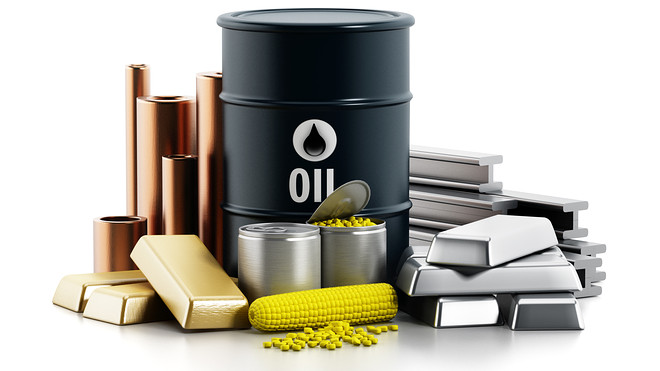Commodities are interchangeable goods of the same type used in commerce.
Commonly calculated as inputs for the production of goods and services, the quality of commodities may vary but amongst producers, the quality appears relatively uniform.
Every commodity must meet basis grade, which is a minimum quality standard before they can be traded on an exchange. Adjustments to basis grade happen frequently to keep up with evolving markets.
The concept behind a commodity would be that there is a minimum difference between a commodity from one producer from that of a separate producer. One bullion of gold is essentially the same product, no matter who the producer may be.

A commodity may be bunched up in three groups: agricultural, metals, and energy.
For agriculture, an example of a commodity includes tangible goods used in drinks or for foods. These include commodities such as coffee, sugar, orange juice, soybeans, rice, corn, oats, and wheat. Livestock animals such as lean hogs, cattle, and chicken are classified as a commodity along with non-edible goods such as lumber or cotton.
Gold, silver, platinum, and copper are examples of a mined metal commodity while an energy categorized commodity includes natural gas, crude oil, heating oil, and RBOB gasoline.
The prices of a commodity are driven by commodity trading where the frequent exchange of commodities often results in volatile market conditions.
Oil, gold, and agricultural goods are the most commonly traded commodities where they are mainly traded as futures contracts (to avoid heavy transportation fees of goods) which are computed in U.S. dollars. Should the price of the U.S. dollar appreciate then it takes fewer U.S. dollars to buy that same sum of commodities, therefore, depreciating the value of that commodity.
Chicago, New York, and Atlanta compose the U.S. commodity market headquarters. The Chicago Mercantile Exchange oversees agricultural commodities, the Chicago Board of Trade focuses on grains while the New York Mercantile Exchange supervises primarily metals and energy.
Traders often hedge against inflation by diversifying their portfolio through trading and owning commodities.
















